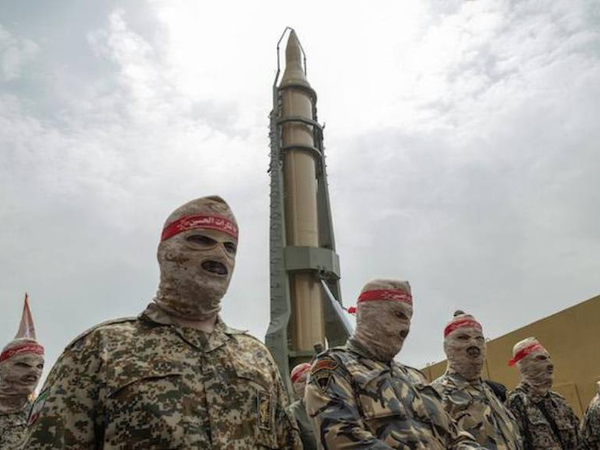Israeli Prime Minister Benjamin Netanyahu said on Tuesday that Iran remains the Jewish state’s greatest threat as the country evaluates its latest defense budget.
The Nagel Committee, which makes recommendations for defense spending, presented its findings to Netanyahu, Defense Minister Israel Katz and Finance Minister Bezalel Smotrich for further review.
“We have known for years that Iran is the greatest threat to us, both directly and through its proxies,” he said. “Of course, we took care to strike this axis very hard,” he added, referring to last year’s blitz on Iran-backed Hamas in Gaza and Hezbollah in Lebanon.
However, in spite of the weakening of Hamas in Gaza following the war sparked by the group’s October 7 attacks in 2023, and a bombardment of Hezbollah infrastructure and leadership, the long-time premier said the threat from Iran’s military allies persists.
Warning against complacency, he said: “We have been witness to the fact that: A, it [the threat] still exists and B, additional forces have entered the field, and we always need to be prepared for what may come.”
While Israel and Hezbollah maintain a 60-day ceasefire, the country has extended housing support until the end of February for the tens of thousands displaced from Israel's north since the outbreak of the conflict as questions over the future of the ceasefire remain.
Both sides report dozens of breaches since the US-brokered agreement began, with Defense Minister Katz warning on Sunday: “If Hezbollah does not withdraw beyond the Litani River, there will be no agreement.”
After the fall of Syria’s long-time President and ally of Iran Bashar al-Assad and with the second term looming of US President Donald Trump, who has promised a maximum pressure policy on Iran, Netanyahu said: “We are in the midst of a change in the basic situation in the Middle East.
The Israeli government has until the end of March to pass the new defense budget in the country’s parliament, expected to be in the region of $27-$40 billion as the country continues to battle Iran’s allies including the Houthis in Yemen.
